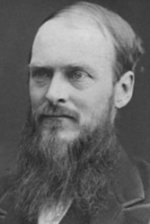One notable example of a Quaker conscientious objector in the North is Cyrus G. Pringle, whose story is told in The Record of a Quaker Conscience ():
At Burlington, Vt., on , I was drafted. Pleasant are my recollections of . Much of that rainy day I spent in my chamber, as yet unaware of my fate; in writing and reading and in reflecting to compose my mind for any event. The day and the exercise, by the blessing of the Father, brought me precious reconciliation to the will of Providence.
With ardent zeal for our Faith and the cause of our peaceable principles; and almost disgusted at the luke-warmness and unfaithfulness of very many who profess these; and considering how heavily slight crosses bore upon their shoulders, I felt to say, “Here am I, Father, for thy service. As thou will.” May I trust it was He who called me and sent me forth with the consolation: “My grace is sufficient for thee.” Deeply have I felt many times since that I am nothing without the companionship of the Spirit.
I was to report on . Then, loyal to our country, William Lindley Dean and I appeared before the Provost Marshal with a statement of our cases. We were ordered for a hearing on . On the afternoon of W.L.D. was rejected upon examination of the Surgeon, but my case not coming up, he remained with me, — much to my strength and comfort. Sweet was his converse and long to be remembered, as we lay together that warm summer night on the straw of the barracks. By his encouragement much was my mind strengthened; my desires for a pure life, and my resolutions for good. In him and those of whom he spoke I saw the abstract beauty of Quakerism. On came Joshua M. Dean to support me and plead my case before the Board of Enrollment. On , I came before the Board. Respectfully those men listened to the exposition of our principles; and, on our representing that we looked for some relief from the President, the marshal released me for twenty days. Meanwhile appeared Lindley M. Macomber and was likewise, by the kindness of the marshal, though they had received instructions from the Provost Marshal General to show such claims no partiality, released to appear on .
All these days we were urged by our acquaintances to pay our commutation money; by some through well-meant kindness and sympathy; by others through interest in the war; and by others still through a belief they entertained it was our duty. But we confess a higher duty than that to country; and, asking no military protection of our Government and grateful for none, deny any obligation to support so unlawful a system, as we hold a war to be even when waged in opposition to an evil and oppressive power and ostensibly in defence of liberty, virtue, and free institutions; and, though touched by the kind interest of friends, we could not relieve their distress by a means we held even more sinful than that of serving ourselves, as by supplying money to hire a substitute we would not only be responsible for the result, but be the agents in bringing others into evil.
Pringle was tortured and threatened with execution, but refused to give in. Eventually, President Lincoln interceded on his behalf, and he was released.

